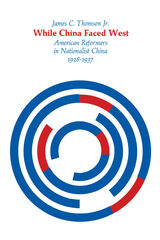
Amílcar Cabral was an agronomist who led an armed struggle that ended Portuguese colonialism in Guinea-Bissau and Cabo Verde. The uprising contributed significantly to the collapse of a fascist regime in Lisbon and the dismantlement of Portugal’s empire in Africa. Assassinated by a close associate with the deep complicity of the Portuguese colonial authorities, Cabral not only led one of Africa’s most successful liberation movements, but was the voice and face of the anticolonial wars against Portugal.
A brilliant military strategist and astute diplomat, Cabral was an original thinker who wrote innovative and inspirational essays that still resonate today. His charismatic and visionary leadership, his active pan-Africanist solidarity and internationalist commitment to “every just cause in the world,” remain relevant to contemporary struggles for emancipation and self-determination. Peter Karibe Mendy’s compact and accessible biography is an ideal introduction to his life and legacy.

Nationalism was a driving, moving spirit in the nineteenth-century Germany of Friedrich Schleiermacher. Jerry F. Dawson, through his thoughtful and well-wrought study of Friedrich Schleiermacher, provides an insight into contemporary nationalistic movements and the people who have a part in them. Schleiermacher, a prominent theologian and educator, was also a leading contributor to the tide of nationalism which swept Germany during the Napoleonic era. Dawson does not present Schleiermacher as an archetype for nationalists, but rather as an example of one man who was willing to sacrifice everything for the good of the nation.
Examining the influence of Pietism, rationalism, and romanticism on Schleiermacher, the author explains the origins of his subject's nationalistic activities and traces the evolution of his patriotic point of view. Dawson depicts the development of Schleiermacher's patriotism from Prussian particularism to German nationalism—an allegiance to an idealized Germany unified in religion, language, folkways. He describes the diverse approaches utilized by Schleiermacher to achieve a patriotic awakening among his countrymen: "…he preached nationalistic sermons; he delivered scholarly lectures; he repeatedly risked his life on dangerous missions which would help free Germany from France; he used his journalistic talents to try to stimulate the national consciousness of the German people; and he even served in the government of Prussia in an attempt to reconstruct the educational system so that nationalism might be advanced."

The years from 1928 to 1937 were the “Nanking decade” when the Chinese Nationalist government strove to build a new China with Western assistance. This was an interval of hope between the turbulence of the warlord-ridden twenties and the eight-year war with Japan that began in 1937. James Thomson explores the ways in which Americans, both missionaries and foundation representatives, tried to help the Chinese government and Chinese reformers undertake a transformation of rural society. His is the first in-depth study of these efforts to produce radical change and at the same time avoid the chaos and violence of revolution.
Despite the conservatism of the right wing in the Kuomintang party dictatorship, this Nanking decade saw many promising beginnings. American missionaries—the largest group of Westerners in the Chinese hinterland—often took the initiative locally, and some rallied to support of China’s first modern-minded government. They assisted both in rural reconstruction programs and in efforts of at ideological reform. Thomson analyzes the work of the National Christian Council in an area of Kiangsi province recently recovered from Communist rule. He also traces the deepening involvement of missionaries and the Chinese Christian Church in the “New Life Movement,” sponsored by Chiang Kai-shek.
Unhappily aware of the sharpening polarization of Chinese politics, these American reformers struggled in vain to steer clear of too close an identification with the ruling party. Yet they found themselves increasingly identified with the Nanking regime and their reform efforts obstructed by its disinclination or inability to revolutionize the Chinese countryside. In this way, American reformers in Nationalist China were forerunners of subsequent American attempts, under government sponsorship, to find a middle path between revolution and reaction in other situations of national upheaval.
For this book, James Thomson has used hitherto unexplored archives that document the participation of American private citizens in the process of Chinese social, economic, and political change.
READERS
Browse our collection.
PUBLISHERS
See BiblioVault's publisher services.
STUDENT SERVICES
Files for college accessibility offices.
UChicago Accessibility Resources
home | accessibility | search | about | contact us
BiblioVault ® 2001 - 2024
The University of Chicago Press









